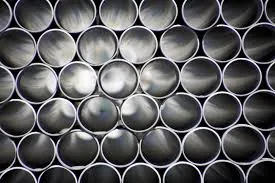
-
 Afrikaans
Afrikaans -
 Albanian
Albanian -
 Amharic
Amharic -
 Arabic
Arabic -
 Armenian
Armenian -
 Azerbaijani
Azerbaijani -
 Basque
Basque -
 Belarusian
Belarusian -
 Bengali
Bengali -
 Bosnian
Bosnian -
 Bulgarian
Bulgarian -
 Catalan
Catalan -
 Cebuano
Cebuano -
 China
China -
 China (Taiwan)
China (Taiwan) -
 Corsican
Corsican -
 Croatian
Croatian -
 Czech
Czech -
 Danish
Danish -
 Dutch
Dutch -
 English
English -
 Esperanto
Esperanto -
 Estonian
Estonian -
 Finnish
Finnish -
 French
French -
 Frisian
Frisian -
 Galician
Galician -
 Georgian
Georgian -
 German
German -
 Greek
Greek -
 Gujarati
Gujarati -
 Haitian Creole
Haitian Creole -
 hausa
hausa -
 hawaiian
hawaiian -
 Hebrew
Hebrew -
 Hindi
Hindi -
 Miao
Miao -
 Hungarian
Hungarian -
 Icelandic
Icelandic -
 igbo
igbo -
 Indonesian
Indonesian -
 irish
irish -
 Italian
Italian -
 Japanese
Japanese -
 Javanese
Javanese -
 Kannada
Kannada -
 kazakh
kazakh -
 Khmer
Khmer -
 Rwandese
Rwandese -
 Korean
Korean -
 Kurdish
Kurdish -
 Kyrgyz
Kyrgyz -
 Lao
Lao -
 Latin
Latin -
 Latvian
Latvian -
 Lithuanian
Lithuanian -
 Luxembourgish
Luxembourgish -
 Macedonian
Macedonian -
 Malgashi
Malgashi -
 Malay
Malay -
 Malayalam
Malayalam -
 Maltese
Maltese -
 Maori
Maori -
 Marathi
Marathi -
 Mongolian
Mongolian -
 Myanmar
Myanmar -
 Nepali
Nepali -
 Norwegian
Norwegian -
 Norwegian
Norwegian -
 Occitan
Occitan -
 Pashto
Pashto -
 Persian
Persian -
 Polish
Polish -
 Portuguese
Portuguese -
 Punjabi
Punjabi -
 Romanian
Romanian -
 Russian
Russian -
 Samoan
Samoan -
 Scottish Gaelic
Scottish Gaelic -
 Serbian
Serbian -
 Sesotho
Sesotho -
 Shona
Shona -
 Sindhi
Sindhi -
 Sinhala
Sinhala -
 Slovak
Slovak -
 Slovenian
Slovenian -
 Somali
Somali -
 Spanish
Spanish -
 Sundanese
Sundanese -
 Swahili
Swahili -
 Swedish
Swedish -
 Tagalog
Tagalog -
 Tajik
Tajik -
 Tamil
Tamil -
 Tatar
Tatar -
 Telugu
Telugu -
 Thai
Thai -
 Turkish
Turkish -
 Turkmen
Turkmen -
 Ukrainian
Ukrainian -
 Urdu
Urdu -
 Uighur
Uighur -
 Uzbek
Uzbek -
 Vietnamese
Vietnamese -
 Welsh
Welsh -
 Bantu
Bantu -
 Yiddish
Yiddish -
 Yoruba
Yoruba -
 Zulu
Zulu
Advanced FRP Vessel Solutions for Industrial Applications
The Rise of FRP Vessels A Sustainable Alternative in Maritime Engineering
In recent years, the maritime industry has witnessed a remarkable transformation with the increasing adoption of Fiber Reinforced Plastic (FRP) vessels. These innovative structures, known for their lightweight, durability, and corrosion resistance, are revolutionizing the way we think about boat design and construction. As environmental concerns rise and the demand for sustainable solutions grows, FRP vessels are stepping into the spotlight as a viable alternative to traditional materials like steel and aluminum.
.
One of the most significant advantages of FRP vessels is their resistance to corrosion. Unlike traditional materials, which can suffer from rust and degradation when exposed to harsh marine environments, FRP vessels maintain their integrity over time. This durability not only extends the lifespan of the vessel but also minimizes maintenance costs. Shipowners can save significant amounts of money over the long term by opting for FRP materials that require less frequent repairs and replacements.
frp vessel

The environmental benefits of FRP vessels are also noteworthy. As the maritime industry grapples with the challenge of reducing its carbon footprint, FRP vessels offer an opportunity for cleaner operations. Their lightweight properties lead to lower emissions during transit, and the materials used in their construction can often be recycled, contributing to a more circular economy. Additionally, FRP does not leach harmful substances into the water, making it a safer choice for both marine ecosystems and human health.
The versatility of FRP technology is evident in various applications. From small recreational boats to large commercial vessels, the potential uses of FRP are vast. In the fishing industry, FRP vessels are gaining popularity for their durability and ability to withstand rough seas, while research and exploration vessels benefit from their adaptability and low maintenance costs. Moreover, the leisure boating sector is increasingly adopting FRP materials for their aesthetic appeal and design flexibility, allowing for innovative shapes and finishes that enhance the overall experience.
Despite its many advantages, the transition to FRP vessels is not without challenges. The initial cost of production can be higher than that of traditional materials, which may deter some potential buyers. However, as technology advances and production techniques become more efficient, the price of FRP vessels is expected to decrease, making them more accessible to a broader audience.
In conclusion, FRP vessels represent a significant step forward in the maritime industry, offering a sustainable and efficient alternative to traditional boat materials. With their lightweight, durability, and environmental benefits, FRP vessels are not only transforming how we build and operate boats but also paving the way for a greener future in maritime engineering. As the industry continues to evolve, embracing technologies like FRP will be key to addressing the challenges of the 21st century.









